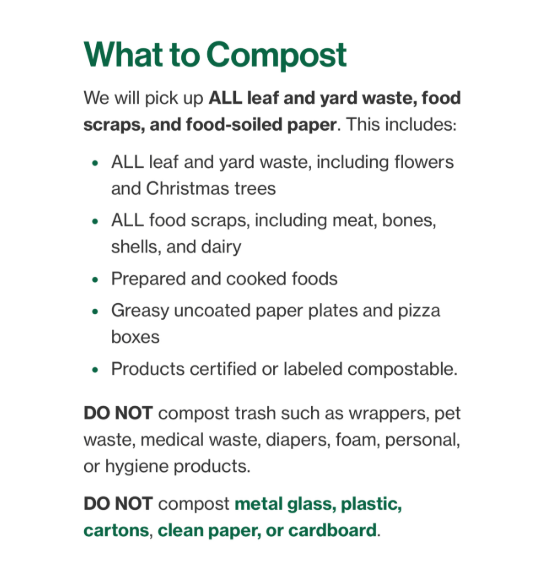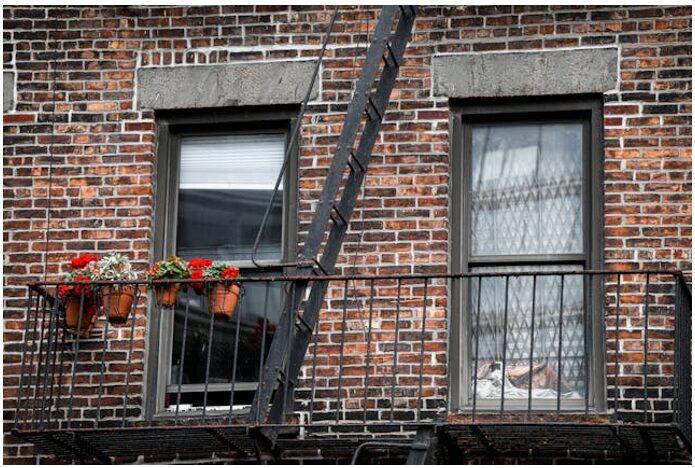Starting April 1, 2025, NYC enforces its mandatory composting rules to reduce waste and tackle climate change. Learn about the fines, rules, and how residents and building managers can comply.
Starting April 1, 2025, New York City will begin enforcing its mandatory composting program, requiring residents and building staff to separate food waste from regular trash. This new initiative is part of the city’s broader push to reduce landfill waste, fight climate change, and address its rat problem.
However, while the law is hailed as an environmental win, it has sparked significant backlash from landlords, property owners, and building maintenance staff, who argue that the program puts an unfair burden on them.
Why Was the Law Passed?
The composting mandate, passed in 2020, was designed to tackle two major challenges: reducing waste and improving public health. Food waste is a major contributor to landfills, where it generates methane, a potent greenhouse gas. By diverting organic waste into compost, the city aims to create rich soil, lower carbon emissions, and reduce the amount of trash sent to landfills.
Additionally, the city hopes composting will help curb the growing rat population, which thrives on food scraps left in trash heaps. By keeping food waste out of regular garbage, the city aims to prevent rats from being attracted to apartment buildings and public spaces.
What’s Changing for Residents?
The composting rules require all residents to separate food scraps like coffee grounds, fruit peels, and chicken bones from their regular trash. While individual residents won’t be fined directly for non-compliance, building maintenance staff are tasked with ensuring food waste is properly sorted. Fines will start at $25 for smaller buildings, escalating with repeat violations. Larger buildings with nine or more units will face higher fines, up to $300 for repeated offenses.
Residents in apartment buildings, especially those with trash chutes, won’t be directly impacted by the rules, as staff will handle the sorting of waste. This has raised concerns among landlords and building managers, who argue that the responsibility placed on building staff is unrealistic and could overwhelm maintenance teams, especially in high-density buildings with high volumes of waste.
Community Reactions: Support and Opposition
While environmental groups and public health advocates have applauded the program for its potential to reduce waste and improve sanitation, many New Yorkers are not so sure.
Supporters of the program, including environmentalists, see the composting mandate as a necessary step toward reducing the city’s carbon footprint and addressing the rodent problem. By composting food scraps, New York could transform waste into a valuable resource, creating healthy soil and reducing landfill congestion.
However, landlords and property owners have strongly opposed the mandate, saying it unfairly burdens maintenance staff. Kenny Burgos, CEO of the New York Apartment Association, criticized the policy, describing it as unrealistic. “This forces staff into sorting through dumpsters, adding more work on top of their already demanding responsibilities,” he said.
Additionally, some residents fear that composting will make the city’s rat problem worse. Improperly handled food scraps could attract more pests, they argue, negating any potential benefits. Furthermore, many apartment dwellers are concerned that the lack of clear guidance from building management could result in confusion and inconsistent enforcement.
Despite these concerns, city officials have emphasized that composting is essential to the city’s long-term environmental and sanitation goals. The Department of Sanitation has been holding informational sessions to help residents and property managers understand the new requirements.
Success Could Position NYC as a Leading Model for Urban Sustainability
As April 1, 2025, approaches, enforcement of the new composting fines will begin. While the city has invested in education and outreach, it remains to be seen whether the program can overcome logistical challenges and win over skeptics. New Yorkers will need to adapt to the new rules, and building staff will play a crucial role in ensuring compliance.
Ultimately, the success of New York City’s composting program will depend on whether residents and building managers can work together to make waste management more sustainable. If it succeeds, it could be a model for other cities looking to reduce waste and combat climate change. But with ongoing concerns from landlords and residents, the city’s ambitious green initiative will need careful monitoring and adjustments to ensure it achieves its environmental goals.
—————————————————————————————————————————————-
How to Implement New York City’s Composting Rules: A Quick Guide
As New York City’s mandatory composting program rolls out, here’s how residents and building staff can easily comply with the new rules and make the transition smooth.

For Residents:
1. Separate Your Organic Waste:
• What to Compost: All food scraps (including meat, bones, dairy, and prepared foods), food-soiled paper products (like greasy uncoated paper plates and pizza boxes), and yard waste.
• What Not to Compost: Non-organic materials such as metal, glass, plastic, clean paper, cardboard, pet waste, diapers, personal hygiene products, and foam products.
• Collection Tips: Use a lidded container to collect food scraps in your kitchen. Freezing scraps can help reduce odors and pests.
2. Use Designated Compost Bins:
• Buildings with four or more units are required to provide a designated storage area with clearly labeled compost bins. If your building doesn’t have one, consult your building manager or call 311 to report non-compliance.
3. Proper Disposal:
• Place your organic waste in the designated compost bins. Do not dispose of food scraps in regular trash chutes or bins.
4. Set-Out Times:
• Compost is collected weekly on the same day as recycling. Set out your compost bin after 6 PM the night before your collection day.
For Building Managers and Staff:
1. Provide Appropriate Composting Bins:
• Ensure that clearly labeled composting bins (55 gallons or less with a secure lid) are available in designated common areas. These bins should be easily accessible to residents.
2. Educate Residents:
• Distribute informational materials and post signage to inform residents about composting guidelines, including what can and cannot be composted.
3. Maintain Compost Bins:
• Regularly monitor and clean compost bins to prevent odors and pest issues. Ensure bins are securely closed at all times.
4. Compliance Monitoring:
• Oversee proper sorting of waste by residents. Address any issues promptly to maintain compliance with city regulations.
5. Stay Informed:
• Keep up-to-date with city guidelines and enforcement schedules. If challenges arise, contact the Department of Sanitation for assistance.
Enforcement and Fines:
The city will issue fines to property owners who fail to comply with composting regulations. For buildings with one to eight units, fines start at $25 for the first offense, increasing to $50 for the second offense, and $100 for subsequent violations. For buildings with nine or more units, fines begin at $100 for the first offense, rising to $200 for the second, and $300 for further infractions.
By adhering to these guidelines, New Yorkers can contribute to a cleaner, greener, and more sustainable city.






